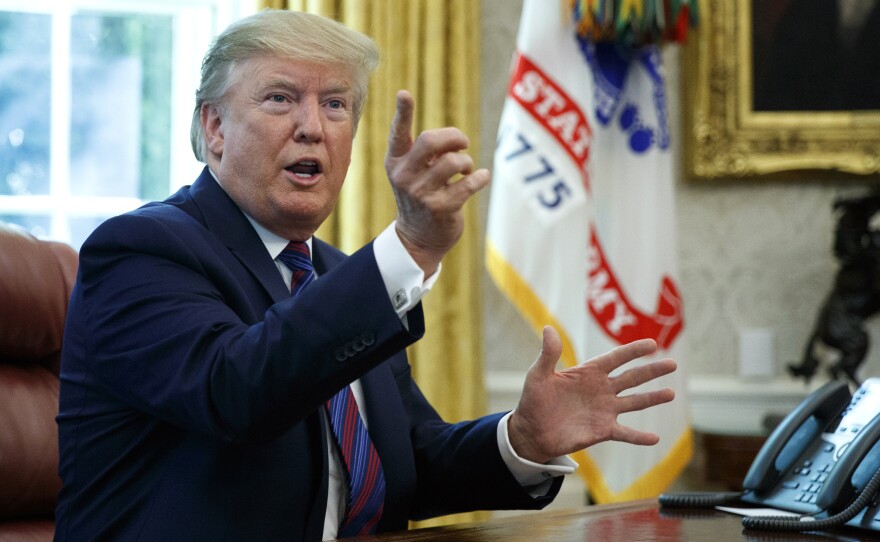Updated at 5:22 p.m. ET
President Trump announced Friday that Guatemala has agreed to sign a so-called "safe third country asylum agreement" as part of Trump's strategy for reducing the flow of migrants to the U.S.
Trump made the announcement before reporters in the Oval Office as Guatemalan interior minister Enrique Degenhart signed the agreement.
He called it "a very important" signing. "It's going to be terrific for them and terrific for the United States," Trump said, adding the agreement "will usher in a new era and investment and growth for Guatemala."
The agreement comes after days of threats by Trump to Guatemala that included potential tariffs on Guatemalan goods, taxes on remittances sent home by Guatemalans living in the U.S. and, a potential travel ban on Guatemalan nationals to the U.S.
Under the agreement, migrants traveling through Guatemala from countries such as Honduras and El Salvador would have to claim asylum in Guatemala instead of the U.S. Getting Guatemala to sign the agreement was a key component of Trump's strategy for reducing illegal migration to the U.S.
Earlier this month, Guatemala's high court blocked its government from signing the deal with the United States, which led to Trump's threats.
And it's not clear whether the agreement is legal or how it will be implemented. The Guatemalan Congress is supposed to ratify such treaties.
But Guatemalan business leaders had pressured the government of President Jimmy Morales to make a deal with Trump. The U.S. is Guatemala's top trading partner and tariffs on Guatemalan goods coming into the U.S. could devastate the country.
Trump said another component of the deal will make it easier for Guatemalans to legally come to the U.S. as farm workers. He said other countries would also soon be signing similar asylum agreements with the U.S.
Refugees International President Eric Schwartz said Guatemala is "in no way safe for refugees and asylum seekers." He said the agreement "also violates U.S. law and will put some of the most vulnerable people in Central America in grave danger. At the moment, it is not clear exactly what arrangement has been reached in light of the Guatemalan Constitutional Court's provisional decision against a third country agreement."
Copyright 2019 NPR. To see more, visit https://www.npr.org.






